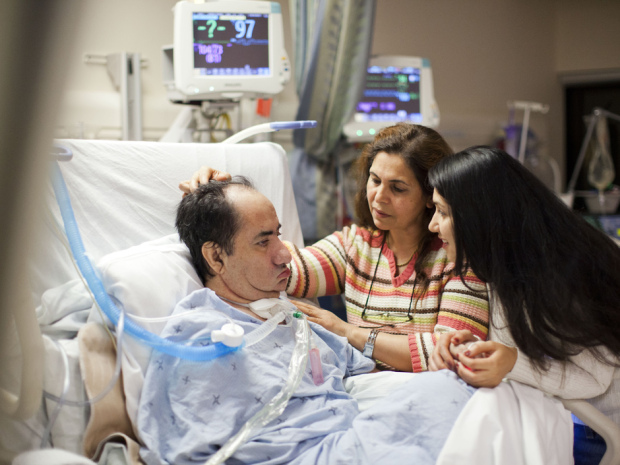
The Supreme Court of Canada heard the case of Toronto patient Hassan Rasouli Monday, which centres on the complex and often deeply painful issue of who should decide end-of-life care. With an aging demographic, increased life expectancy and ever more sophisticated technological interventions, these kinds of cases will almost certainly become more frequent. This is a welcome chance for the country’s highest court to clarify how end-of-life treatment should proceed when a physician and a patient’s family disagree.
This article was published by The Globe and Mail on December 12th, 2012. To see this article and other related articles on The Globe and Mail website, please click here
For too long, Canada has lacked clear and consistent guidelines. Decisions about end-of-life care, though they take place in healthcare settings, are not simply medical. A patient’s values and beliefs will help shape the goals of their treatment. The patient (or their surrogate) must have a say in the process. At the same time, a patient’s family should not be able to demand life-sustaining treatment in every situation, even if it is futile and could, in fact, be cruel.
Only Ontario has any mechanism in place to resolve disputes between physicians and families, a body called the Consent and Capacity Board. But this board was not specifically designed to deal with this issue, and its members may lack the expertise to properly determine what a physician’s standard of care means when it comes to continuing treatment of a patient on life support. The court has a chance to recommend how such a body should be revamped to function more effectively, and to put guidelines in place for other provinces. “This is an issue across the country and a painfully corrosive one,” notes Jocelyn Downie, the Canada Research Chair in health law and policy and a professor at Dalhousie University.
Mr. Rasouli was diagnosed as being in a persistent vegetative state, after complications from surgery for a brain tumour in Oct. 2010 at Toronto’s Sunnybrook Health Sciences Centre. Since then, the retired engineer has required round-the-clock care, including a ventilator, machines to feed and hydrate him, and medications to maintain his blood pressure. His two critical-care physicians – Dr. Brian Cuthbertson and Dr. Gordon Rubenfeld – believe he will never regain any degree of consciousness and want to stop feeding and hyrdation, begin palliative care, and allow him to die.
However, his wife disagrees, believing his condition is improving and that some movements he makes are purposeful. This difference of opinion prompted the doctors to launch the current legal action. They believe they are not required to go to Consent and Capacity Board because there is no medical benefit to the patient in this case, so the standard of care cannot require this treatment.
Clearly, neither a patient’s designated decision-maker nor a doctor should have unilateral power over life and death. While Mr. Rasouli’s doctors believe there is no medical benefit to providing ongoing mechanical interventions for him, bioethicists argue that this is a value judgment. The medical benefit is clear: Mr. Rasouli is still alive. The underlying, essential question may be: Is that a worthwhile benefit?

